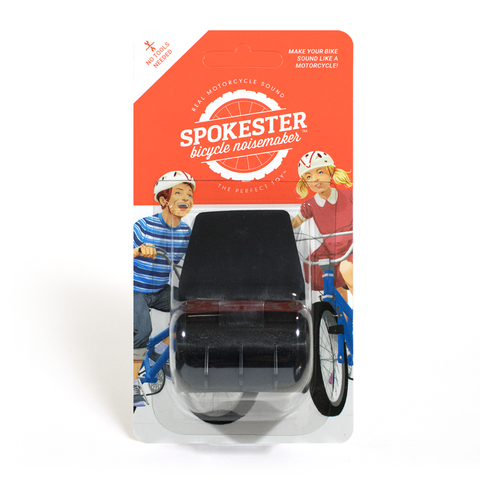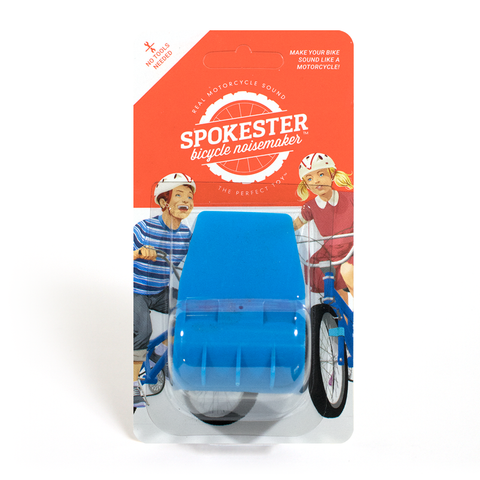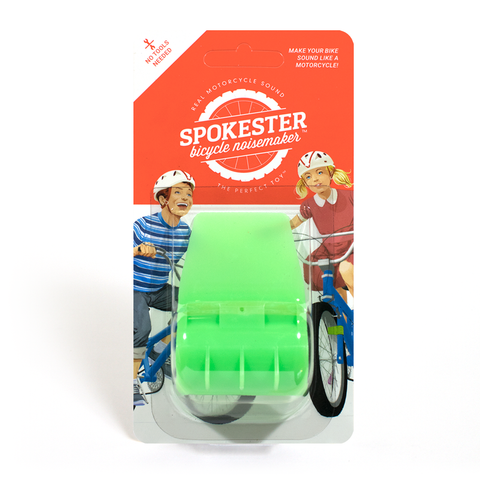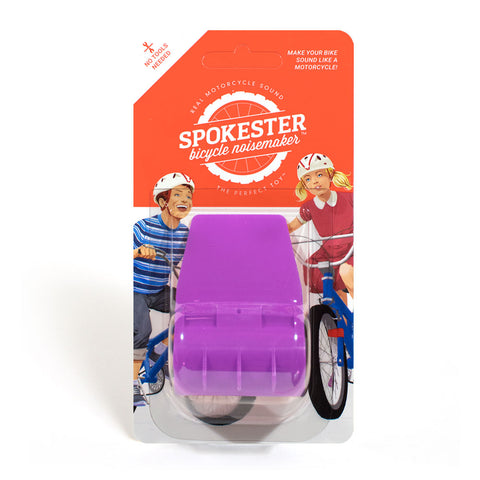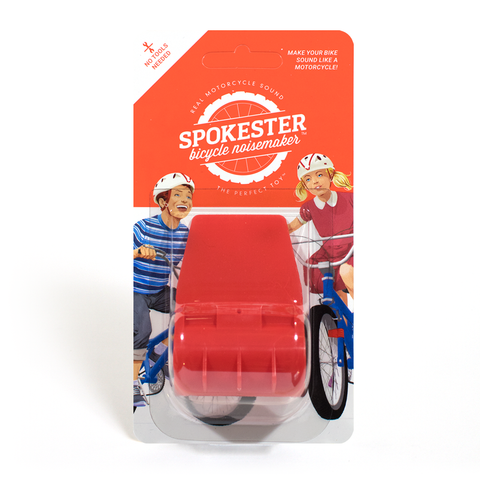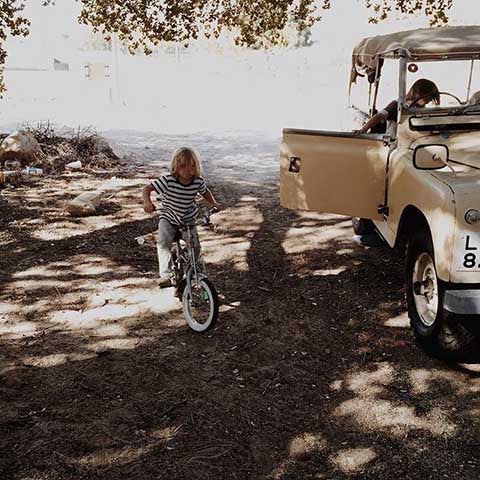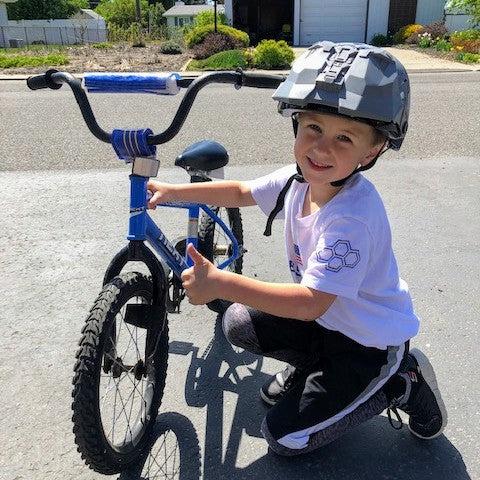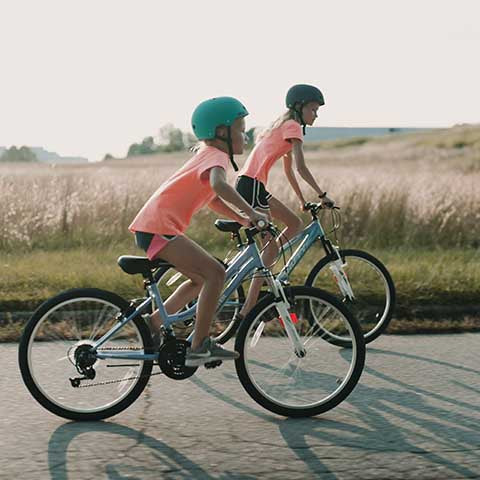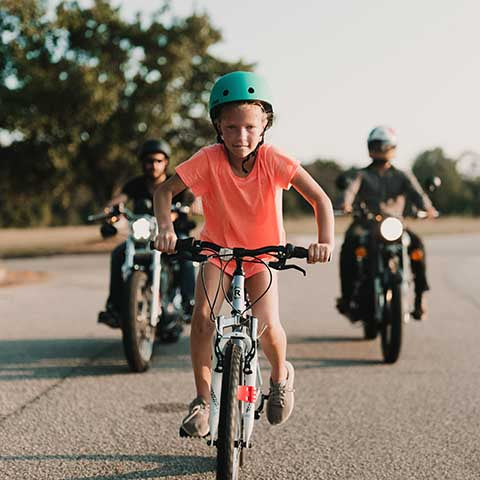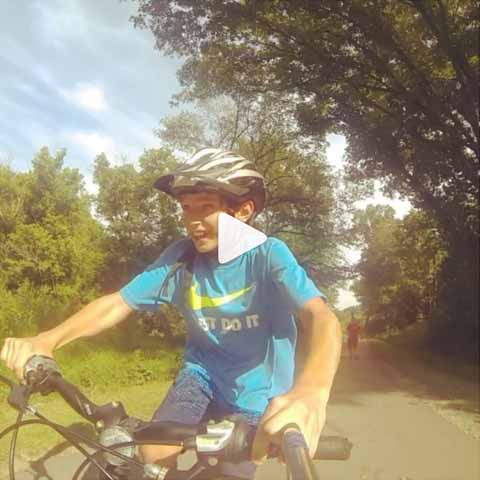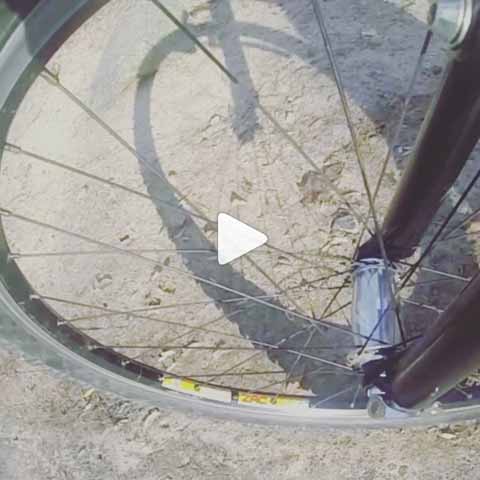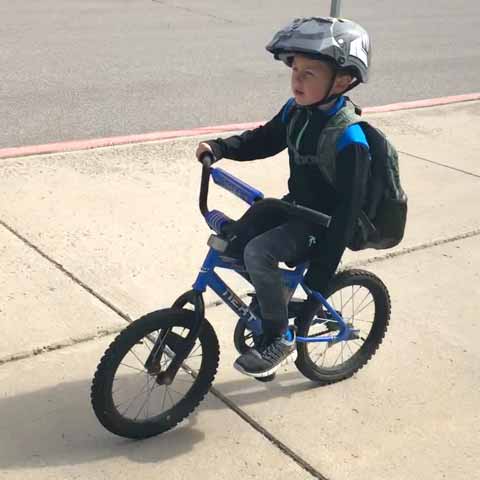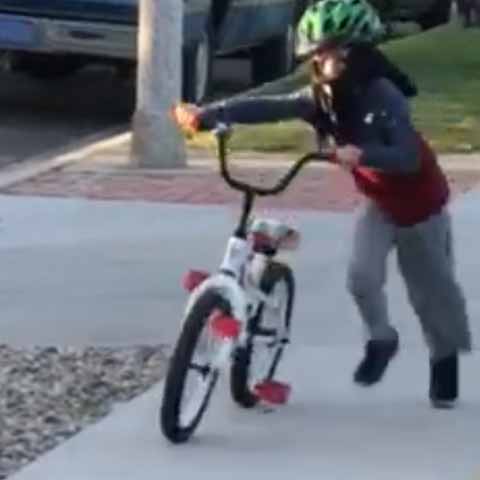You Should Let Your Kids Play Outside Alone
Is there any other child-raising issue that's more controversial than kids playing outside alone? It doesn't seem that long ago that parents encouraged, even insisted, that their children go outside and play with the other neighborhood kids. "Be home by dinner," was my mom's favorite saying. Times have really changed, though. For many parents today the idea of their kids playing outside alone is simply unthinkable. There are even some people out there that never let their teens leave the house unsupervised. How they manage that is a mystery, but there it is.
How serious is this issue? Here are a few examples:
- A mother allowed her six-year-old to play outside unsupervised. As a result, she was investigated by Child Protective Services. Her husband and three children were all questioned several times by authorities.
- An 11-year-old Florida boy came home to find his parents were not there yet. He played in his backyard alone for an hour-and-a-half until his parents' return. The parents were arrested and charged with felony neglect.
- Police found a Maryland couple's six- and ten-year-year-old kids playing unattended in a park two blocks from their home. As a result, the couple had to sign a "safety plan" that prohibited them from leaving their children unsupervised again.
Now, when it comes to cases like these, the devil is often in the details. And there certainly may be plenty of room for discussion about the appropriateness of behavior on the parts of both the parents and authorities. The point is that issues about kids and unattended play are going to be controversial.
What's the Problem?
Balancing the need for children to develop confidence and independence with real safety concerns is the issue. Deciding between real and imagined safety concerns is the problem.
Fear is a very powerful emotion, especially when it concerns the wellbeing of our children. Fears are often exaggerated, however, by news reports and the social media echo chamber. Amber alerts, for example, are an important tool in combating child abduction. But they also leave the impression that child abduction is out of control. The reality is that child abduction today remains an extremely rare occurrence. Additionally, almost all forms of crime, particularly violent crime, have been trending downward for the past two-and-a-half decades.
Simply put, there's a gap between real and perceived dangers for kids playing outside alone. That's a problem since playing outdoors is good for them. And irrational fear is keeping them indoors.
What is "Free-range Parenting"?
Before going any further, now is a good time to talk about a term you've probably heard: "free-range" parenting. Free-range parenting has to do with encouraging children to act independently in accordance with their age balanced with an acceptable level of risk. The term is a response to tighter limits parents were putting on their children to roam about freely without adult supervision. Free-range parenting is often thought of as the opposite of "helicopter parenting". Never heard of that? Helicopter parenting refers to parents who pay extremely close attention to all of their child's activities and experiences. Like a helicopter hovering over their children all of the time.
Free-range parenting comes with all of the controversy you might expect, a lot of it starting with Lanore Skenazy, the founder of FreeRangeKids.com. In 2008, Skenazy and her husband allowed their 9-year-old son to ride the New York subway by himself. Afterward, Skenazy wrote a column about the experience. This lead to a tremendous backlash and Skenazy being dubbed, "America's Worst Mom."
Whether fair or not, free-range parenting is often associated with the most extreme aspects of child independence and roaming.
Why Kids Playing Outside Alone is a Good Idea
Playing outdoors is really good for kids in a whole lot of ways:
Physical Fitness
When it comes to concern for children's wellbeing, here's a real, unexaggerated problem: childhood obesity. According to the Centers for Disease Control and Prevention (CDC):
- Obesity among children in the U.S. today has more than tripled since the 1970's.
- One in five school-aged children (ages 6–9) is obese.
- Obesity increases a child's chance of developing chronic health conditions and diseases. Among them: asthma, type 2 diabetes, bone and joint problems, and risk factors for heart disease.
- Childhood obesity often leads to adult obesity and associated problems like heart disease, diabetes and cancer.
- Obese kids are more likely to be bullied and suffer from low self-esteem, social isolation and depression.
One of the best things you can do to help your children fight obesity and become more physically fit is to let them play outside. Why? Because children playing outside do things like run, jump, swim, climb and horseplay. In other words, move their bodies. A lot more than when they're in the house. Outdoor physical activity has other benefits for children as well, like strengthening their immune systems. It also raises vitamin D levels, which helps strengthen bones and fight against cancer and other diseases.
Mental Health
It doesn't take a bunch of scientific studies to know that being outdoors in nature makes you feel better. But plenty of studies there are. Among them:
- A University of Colorado Boulder study found that playing in schoolyards with natural habitats and trees reduces stress and inattention.
- A 2012 study concluded that interacting with nature provides both cognitive and affective benefits to individuals with major depressive disorder.
- A 2013 University of Essex study discovered that "ecotherapy" offers a number of positive benefits, including improved mental health and a boost to self-esteem.
So, getting outdoors can definitely have a positive effect on your child's emotional wellbeing. But how about brain smarts?
Intellectual Health
Outdoor activity, for both children and adults, comes with a lot of positive intellectual benefits as well. For example, children's cognitive health improves from being outside in nature. Benefits include reduced ADHD symptoms. Outdoor play for children also increases attention span, encourages learning and problem-solving skills, promotes imagination and creativity, and more.
Put another way: According to experts from the University of Missouri-Kansas City, many fundamental tasks that children must achieve – like exploring, risk-taking, fine and gross motor development, and absorption of basic knowledge – are most effectively learned through outdoor play.
Social Development
Being outside in nature also helps with a bunch of social skills. This 2009 article, for example, took a look at four studies and concluded that nature made people place more focus on their relationships with others and their community than their own personal gain. Kids outside learn self-control, and how to work together, negotiate and compromise. Outdoor activities also increase confidence and independence, and teach responsibility, leadership, and tolerance of others.
Why Unsupervised?
To this point, the discussion has been about the benefits to children of outdoor play. But kids can play outside with parental supervision. Outdoor time plus the safety of supervision, isn't that ideal? Many experts say "no". Some argue that kids playing outside alone or with friends, away from the watchful eyes of an adult, reaps benefits that far outweigh the risks. The American Academy of Pediatricians, for example, argues that the lack of unstructured playtime can lead to depression and anxiety. Other studies have concluded that free, unsupervised play promotes a wealth of positive benefits, like healthy weight, cognitive function, social and emotional development, empathy, and group management skills.
No one is claiming that all children should go without supervision all the time. There are limits. But parents have busy lives that don't always allow enough time for watching the kids play. And allowing kids outdoor playtime, unstructured and unsupervised, has its advantages.
What's an Appropriate Age for Kids Playing Outside Alone?
Now, about those limits. There's a lot of leeway between kids playing outside alone at any age and keeping them locked in the house or under constant surveillance. So for most parents, the question of kids playing outside alone boils down to: At what age, and under what circumstances, is it acceptable? Unfortunately, there appears to be no consensus among parents on the answer. Some say eight, some ten, others 12. A few parents let their children out alone at four. At the other extreme, some parents who won't let their kids outside alone at any age. One telephone poll asked 1000 adults if the law should require supervision of children in public parks:
- 83% agreed that the law should require supervision of six-year-olds.
- 68% agreed that the law should require supervision of nine-year-olds.
- 43% agreed that the law should require supervision of 12-year-olds.
Experts, too, are all over the place on the issue. So, the answer to the age question is up to you. The best advice then is to consider your child's age in light of his or her own personality and maturity.
How to Make Playing Outside Alone Safer
So, you think you're ready to "cut the cord" just a bit and let your child go outside and play alone without you being there every step of the way? Don't worry. There's a lot you can do to help you keep your kids safe – and your sanity – as they head out the front door.
Know the Risks
Take an internal account of your fears. What's on the list? Kidnapping, sexual abuse, physical injury? They're all real concerns. But remember the facts and keep your concerns within reason. Doing so will help you decide the right age and circumstances to let your kids go out on their own.
Know the Law
It's likely that your state and community have a number of laws in place designed to protect your children when their out. Those laws limit your child roaming options, however, so be sure you know them. You'll find laws about children alone in vehicles, children home alone, child neglect and child endangerment. Go online or check with local law enforcement for more information.
Know your Neighborhood
Look around your neighborhood with your child's roaming in mind. Note potential dangers, like heavy traffic, teen and adult hangouts, overgrown empty lots, questionable businesses, etc. Then warn your kids about them.
Check Out the Friends
It's not enough to know where your child intends to go. You need to know who they'll be going there with. Have your child invite his friends over so that you can meet them. Get together with their parents, too. The apple doesn't fall far from the tree, they say.
Take a Test Drive
Not an actual drive. Go out for a roam with your children. Let them lead the way. Show them where they can and can't go, the types of situations to avoid, and what to do and where to go if there's a problem. You'll also get the chance to see where your children are apt to go in case you need to look for them.
Set Boundaries
Your child must understand his or her boundaries. Set check-in times, too. Make sure they know that if they break the rules, there will be consequences. And if they don't clearly understand their boundaries, they're too young to go out alone.
Explain the Risks and Dangers
Your children needs to understand the risks to going out unsupervised – how to cross the street safely, what to do if a stranger approaches, how to avoid bullies, etc. Again, if they're having trouble with these concepts, they're not ready to venture out alone.
Name, Address and Phone Numbers
As soon as your children are old enough to comprehend it, teach them their full names, addresses and two contact phone numbers. And don't let them roam until know them.
Cell Phones
Also, if your child is responsible enough, you might want to consider giving him/her a cell phone. You can restrict the phone's use to only calling you or an emergency number.
Finally, always listen to your children. There's so much you can learn from them. If they feel uncomfortable about going out alone, don't pressure them to do so. If they've been out and something's bothering them, take what they tell you seriously. Remember, your best line of defense for kids playing outside alone safely are the kids themselves.
← Older post Newer post →
